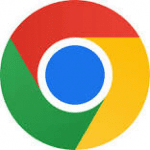
General Applications
- Word Processing Software
- Graphics Software
- Spreadsheet Software
- Presentation Software
- Web Browsers
- Multimedia Software
- Education and Reference Software
- Simulation Software
- Content Access Software
- Information Worker Software
Business Applications
- Customer Relationship Management Application Software
- Enterprise Resource Planning Application Software
- Project Management Application Software
- Business Process Management Application Software
- Database
- Resource Management Application Software
- Productivity Software
- Time Management Application Software
- Educational Software
Application Based on Shareability
- Freeware
- Shareware
- Open source
- Closed source
Are You Seeking Application Software Development Solutions?
Table of Contents
- Benefits of Application Software
- How to Choose The Right Application Software that Fits Your Business
- Cost of Developing an Application Software for Your Business
- Custom Application Software: Ideal For Business With Specific Requirements
- The Future of Application Software
- Develop Your Application Software With Fingent
What is Application Software?

Examples of Application Software





- A suite of Microsoft products such as MS Office, PowerPoint, MS Word, Excel, and Outlook.
- Internet browsers like Google Chrome, Safari, Firefox, etc.
- Graphics and design software such as Adobe Photoshop, CorelDraw, and AutoCAD.
- Real-time online communication tools like Skype, Hangouts, Google Meet, Zoom, and Whatsapp.
- Multimedia and music streaming software such as MX Player, VLC Media Player, Spotify, Pandora, etc.
- Project management software like Asana, Zoho, Slack, Forecast, etc
Things to Look For in An Application Software
Are You Looking To Outsource Your Software Development?
Functions of Application Software
- Data analysis and information management
- Document manager
- Emails, text messaging, audio and video conferencing
- Graphics, animations, and video development
- Accounting, payroll, and finance management
- Project management
- Resource (ERP and CRM system) and HR management
- Software for healthcare management
- Business project management
- LMS and eLearning software

What is the difference between System Software and Application Software?
System Software
- System software is designed to control and manage the hardware and other resources of the system.
- System software is pre-installed with the operating system.
- System software is commonly referred to as general-purpose software.
- It acts as an interface between application software and the system.
- Developed in low-level language or machine code that is more compatible with the system hardware.
- System software can run independently.
- Programming of system software is complex.
- It acts as a platform and runs in the background.
- Performs primary functions of process management, memory management, task scheduling, hardware installation, etc.
- Users don’t interact with system software.
- System software is mandatory for a system to function.
- Examples: compiler, assembler, debugger, driver, etc
Application Software
- Application software is designed to accomplish tasks for a specific purpose based on user requests.
- Application software is third-party software that can be downloaded and installed according to user needs.
- Application software is commonly referred to as specific-purpose software.
- Hosted on the platform, which is provided by the system software.
- Programmed in high-level languages, such as C++, Python, or Javascript.
- Application software cannot run independently and need the presence of system software.
- Programming of applications is comparatively simpler.
- Runs in the foreground and performs a task based on user requests.
- Performs user-specific tasks for which it is designed.
- User interacts with the application software.
- Application software is not mandatory and the system can function without it.
- Examples: word processor, web browser, media player, photoshop, etc.
Know the Terminology Differences
App vs Application
On-premise Application Software vs Hosted Application Software
Application Software vs Application Platform
System Software vs Application Software
Types of Applications Software
Word Processing Software
Project Management Software
Graphics Software
Business Process Management
Spreadsheet Software
Database
Presentation Software
Resource Management Software
Web Browsers
Productivity Software
Multimedia Software
Time Management Software
Educational Software
Freeware Software
Simulation Software
Shareware Software
CRM Application Software
Open Source Software
ERP Application Software
Closed Source Software
General Application Software
General application software is designed to perform a wide range of fundamental functions that a user needs to perform on a system. There are numerous applications that fall under this category. Some of the commonly used application software include:
- Word Processing Software
- Graphics Software
- Spreadsheet Software
- Presentation Software
- Web Browsers
- Multimedia Software
- Education and Reference Software
- Simulation Software
- Content Access Software
- Information Worker Software
Here's an attempt to elucidate a few application software from this list.
Business Application Software
 Customer Relationship Management Application Software
Customer Relationship Management Application Software Enterprise Resource Planning Application Software
Enterprise Resource Planning Application Software Project Management Application Software
Project Management Application Software Business Process Management Application Software
Business Process Management Application Software Database
Database Resource Management Application Software
Resource Management Application Software Productivity Software
Productivity Software Time Management Application Software
Time Management Application Software Educational Software
Educational Software Customer Relationship Management Application Software
Customer Relationship Management Application SoftwareCustomer Relationship Management (CRM) Application Software
CRM application software administers an organization’s interactions with customers by backing all the necessary information/data. A CRM application helps to provide a seamless customer experience to customers. It derives valuable insights by collecting, analyzing, and strategizing customer data across different touchpoints. Salesforce, Zoho CRM, and Netsuite are some common CRM applications. Enterprise Resource Planning Application Software
Enterprise Resource Planning Application SoftwareEnterprise Resource Planning (ERP) Application Software
ERP application software focuses on managing all the core operations and other business processes in an organization. It aids in automating and simplifying business operations involving accounting, procurement, risk management, compliance, etc. Some examples of ERP software are Odoo, Oracle, Microsoft Dynamics, etc. Project Management Application Software
Project Management Application SoftwareProject Management Application Software
Project Management software is a multifunction tool that helps in project planning, resource allocation, and scheduling. It acts as a channel to facilitate communication and collaboration between project stakeholders. It also allows users to manage costs and budgets, documentation, and generate reports. Zoho Projects, Basecamp, and Trello are the commonly used application software for project management. Business Process Management Application Software
Business Process Management Application SoftwareBusiness Process Management Application Software
Business Project Management software is an automation tool to optimize business processes. It gives a complete overview of the business operations and helps curtail errors, miscommunications, and inefficiencies. A few examples of this application software include Zoho creator, Nintex, Kissflow, etc. Database
DatabaseDatabase
Database application software, also knowns as a DBMS (Database Management System), is used to create and manage a database. It helps to organize an organization’s crucial data in a database by storing, modifying, extracting, and searching for information within. Oracle, MySQL, Microsoft SQL Server, PostgreSQL, MongoDB, and IBM Db2 are some of the popular databases. Resource Management Application Software
Resource Management Application SoftwareResource Management Application Software
Resource Management Software is application software that helps allocate and assign people to projects based on requirements. It also ensures smooth management of multiple projects simultaneously. Some well-known resource management applications that help manage human resources are Mavenlink, monday.com, Forecast, etc. Productivity Software
Productivity SoftwareProductivity Software
Productivity Software helps an organization boost its overall productivity. It aids users in accomplishing their tasks more efficiently and promptly. These programs provide users with a smart and hassle-free way to track time, document creation, or collaborate. All types of application software that assist in time management, database management, project management, content management, etc., are known as productivity software. Word processing, spreadsheets, and PowerPoint are examples of the same. Time Management Application Software
Time Management Application SoftwareTime Management Application Software
Time management software helps your workforce stay super productive by providing all the necessary assistance to manage their time effectively. It enables the team to stay more organized and keep track of their time spent on projects. Some fine examples of time management application software include Asana, ClickTime, DeskTime, etc. Educational Software
Educational SoftwareEducational Software
Application software developed to meet all education requirements is termed educational software. It facilitates streamlined teaching and learning of new content and concepts. In addition, educational software promotes personalized and collaborative interactions for students and tutors alike. It includes features such as content creation, sharing of lessons, managing classrooms, student-teacher interaction, etc., to ease online learning. TalentLMS, Skill Lake, Google Classroom, and Litmos are popular examples.Deliver Top-Notch Banking Experiences to Your Customers!
Custom Developed Application Software
Custom Developed Application Software
Freeware
As the very name indicates, it is available free of cost. Users can download freeware application software from the Internet and use it without any charge. However, this software cannot be edited or personalized to one’s needs. Adobe PDF, Mozilla Firefox, and Google Chrome are good examples of this application software.
Shareware
This software is distributed freely to the users on a trial basis, usually with a limited-time offer. After that, the users are expected to pay if they want to continue to use this application software. Some examples of shareware are WinZip, SnapTouch, and Adobe Acrobat.
Open source
This application software is available on the Internet for free, along with the source code. It allows users to modify the software, easily remove errors, and even add features to the software. Open-source software is available in free and paid versions. Few examples of open-source application software are Moodle and Apache Web Server.
Closed source
Majority of application software packages that we use belong to this category. These are usually chargeable and have intellectual property rights or patents over the source code. It usually comes with restricted use. Examples include Microsoft Windows, Adobe Flash Player, WinRAR, mac OS, etc.
As the very name indicates, it is available free of cost. Users can download freeware application software from the Internet and use it without any charge. However, this software cannot be edited or personalized to one's needs. Adobe PDF, Mozilla Firefox, and Google Chrome are good examples of this application software.
This software is distributed freely to the users on a trial basis, usually with a limited-time offer. After that, the users are expected to pay if they want to continue to use this application software. Some examples of shareware are WinZip, SnapTouch, and Adobe Acrobat.
This application software is available on the Internet for free, along with the source code. It allows users to modify the software, easily remove errors, and even add features to the software. Open-source software is available in free and paid versions. Few examples of open-source application software are Moodle and Apache Web Server.
Majority of application software packages that we use belong to this category. These are usually chargeable and have intellectual property rights or patents over the source code. It usually comes with restricted use. Examples include Microsoft Windows, Adobe Flash Player, WinRAR, mac OS, etc.
Benefits of Application Software
Enhanced customer service and satisfaction
Custom application software integrates your CRM with other critical business systems. It provides more reliable and up-to-date customer information so your customer service agents can answer any queries and respond to calls more quickly and efficiently. As a result, it paves the way for improved customer service, leading to increased customer satisfaction.Robust data security
A reputed custom software development company like Fingent can help you integrate the newly developed software with your existing systems in the most secure way. It helps you have complete control over the third-party systems integrated into your software. The application software resides within your firewall and is upgraded and maintained throughout.More flexibility
The fringe benefit of using an application software is that it provides the freedom to integrate and gather data from multiple sources in a single place. This reduces your time considerably and provides a hassle-free process to create customized reports, thereby avoiding using numerous applications to store data.Improved productivity
Application software helps automate routine tasks, which allows employees to save time for strategic business functions and generate more output in a given time. For example, OCR applications that recognize text from scanned images or PDF files are highly useful in the insurance, banking, and law industries. Similarly, RPA applications can reduce repetitive functions, such as replying to emails, verifying claims against a given checklist, or validating payroll data against a given set of rules.Seamless management
Application software is good at eliminating risks, performing research, categorizing tasks, and providing apt solutions with almost zero human errors. Therefore, it is a perfect tool to provide a seamless experience for organizations in managing their overall business operations.More power to decision-making
As application software gives you more reliable and updated business information, your decision-making process will be backed by accurate data. It helps you keep track of past performances and decisions, forecast future trends, plan your budgets, improve hiring and retention, and define contingency plans. Hence, well-designed application software is a CEO’s companion in every sense.How to Choose The Right Application Software that Fits Your Business
- Define your expectations based on the pros and cons of your existing software, if any.
- Prioritize your business needs by determining application features you would like to have and an absolute must-have.
- Compile a list of application software that can provide your needed services and features.
- Validate your shortlisted software apps based on your budget, software license, and features.
- Conduct a complete evaluation testing or demo of the shortlisted applications- will they meet current and future needs.
- Zero down on the application software that can swing around all your needed requirements.
Cost of Developing an Application Software for Your Business
- Functionality, scope, features, and purpose of the application software
- Platforms and devices supported
- Third-party integrations required
- Type of application: web, native, cross-platform, hybrid, etc.
- Back-end development
- Hardware components and compatibility
- The complexity of the application
- Maintenance and support requirements
Custom Application Software: Ideal For Business With Specific Requirements
The Future of Application Software
As technology evolves more and more, application software is slowly finding its way to intrude into all aspects of our lives virtually. Whether it is a brand new app that can be downloaded on your mobile phone or a new way to make vehicles less dependent on a driver, application development is moving ahead by leaps and bounds. But as we look into the future, there are numerous questions about how application software will impact our personal and professional lives. Here's a quick rundown of what many experts believe the future holds for application software.
Artificial intelligence
Companies will rely on developing application software that will allow artificial intelligence to analyze massive amounts of data simultaneously to help them in decision-making that would otherwise prove impossible.
Artificial Intelligence services will drive the smart reinvention of your business workflows, processes, and technology

Mixed Reality (MR)
Mixed reality (MR) is a blend of augmented reality (AR) and virtual reality (VR) and has significant potential in today's enterprise applications. Organizations in various sectors like defense, retail, tourism, architecture, construction, gaming, healthcare, etc., are developing application software to propel their crucial business value.
Mixed Reality solutions empower you to create vivid and accurate reflections on real-world environments that enable improved work collaboration

Autonomous Cars
One area where the application software is projected to make a substantial impact within the next decade is autonomous cars. With the manufacturing industry investing more and more into technology, it is likely to lead to the production of autonomous vehicles, which will bring out many innovations in application software. It is not too distant future that Google and Apple will bring out their autonomous vehicle applications.

IoT
As technology trends continue to develop faster than most of us can keep up with, the Internet of Things (IoT) could make far-reaching impacts on our world. Devices on these networks use application software to exchange data over the Internet.

Cashless Society
Another area where the application software is expected to play a significant role is, moving towards a completely cashless society. As consumers move to a more digital world, all financial transactions are done electronically, paving the way for banking and insurance companies to develop application software to support more digital transactions.

Cloud Gaming
With the growing popularity of cloud gaming, many organizations are turning to cloud-native apps to provide richer playing experiences and provide tangible benefits for both player and provider.

Develop Your Application Software With Fingent
As online transactions soar and digital workplaces emerge, different types of application software will continue to evolve. As a result, the demand for custom software development tailored to the requirements of a business is increasing now more than ever before. From simple customizations to full-cycle software development, Fingent can help address all your specific business requirements, leveraging our application software development capabilities.
Explore our range of services.

18+
Years of Experience

8
Centers of Excellence (CoE)

800+
Completed Projects

Transparent Project Management

500+
Qualified Professionals

Dedicated QA Practices
















































